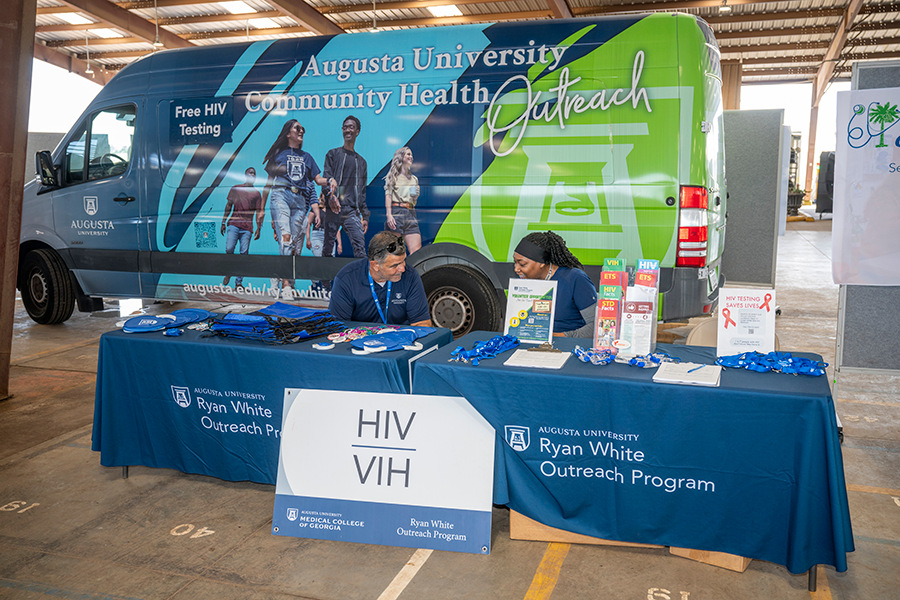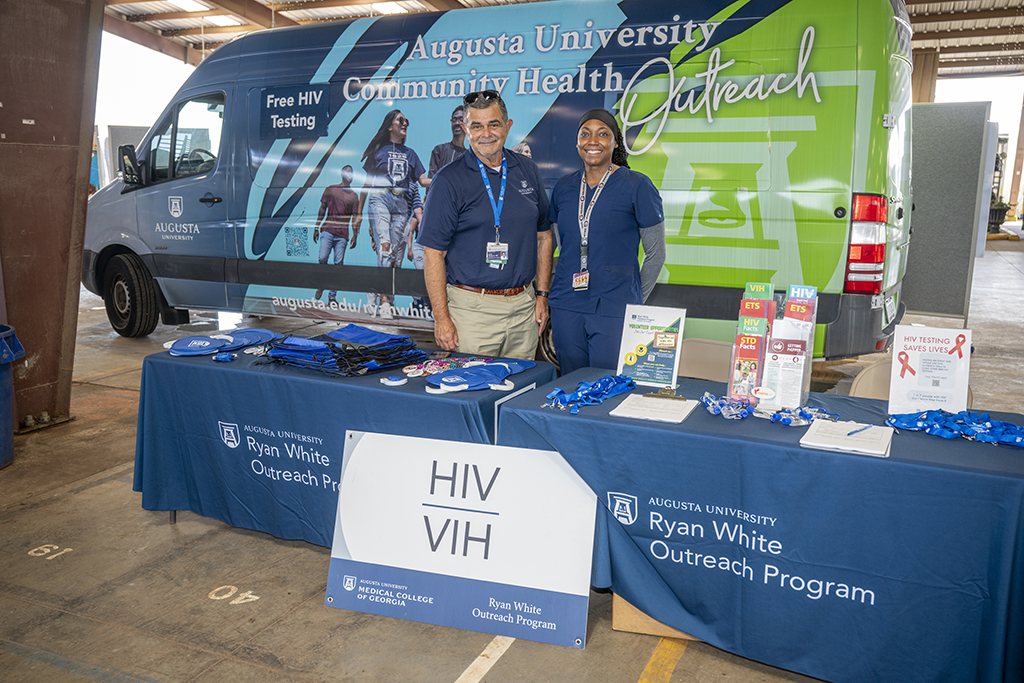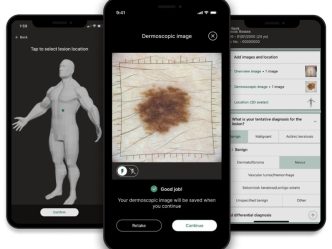When Raven Wells first joined the Ryan White Program at Augusta University in 2015 as the community outreach coordinator, she found that those she interacted with were not as aware of the program’s existence as she expected.
She recalled acquaintances being surprised there was a clinic or mobile unit in the area that offered free HIV testing. In the years since, she has noticed a rise in awareness of the program, thanks to outings and collaborations with other internal programs, including the Costa Layman Health Fair.
Wells has seen the program grow and thrive, allowing leaders to hire more staff and giving them the ability to better serve their patients through a dedicated space in the Moore Building, located on Moore Avenue on the Health Sciences Campus.
“In addition with our outreach program, we are able to identify earlier cases of HIV and bring them in for treatment.”
Jose Vazquez, MD, division chief and professor of medicine of infectious diseases with the Medical College of Georgia at Augusta University
“Once we moved to this building in 2020, we were able to really make this a one-stop shop for all of our clients,” she said. “Our labs are here. They can see their provider, get social services like mental health help, and they also have access to our pharmacy, which they didn’t have before. Having all of this in one place has really helped our patients take control of their care.”
The Ryan White Comprehensive AIDS Resources Emergency Act was first enacted by Congress in 1990. It addresses the unmet health needs of people living with HIV/AIDS and funds health care and support services with the goal of getting people into care and keeping them there.

The Ryan White Program at Augusta University was established in 1995 with the receipt of the initial Part C grant from the federal Ryan White program/CARE Act. Currently, AU’s program serves more than 1,200 clients per year throughout Georgia and South Carolina.
The goal of the program is to ensure access to health care and reduce disparities with an emphasis placed on continuing HIV primary medical care services.
The Costa Layman Health Fair, created by Debbie Layman and the College of Nursing, celebrated its 20th anniversary this year and has evolved into an interdisciplinary event, providing valuable health information for farm workers, as well as hands-on opportunities for education and research for faculty and students. Since the collaboration with the Ryan White Program started, Layman said the workers’ attitudes toward its services have changed greatly.
“In the initial year, nobody wanted to have HIV testing done. The screening was over to the side, and you could see everybody kind of looking at it, but nobody wanted to go over and avail themselves of it,” Layman said. “Now everybody goes to the Ryan White van. They’re very happy to be tested. They’re very comfortable with it. I think that’s one of the successes that we’ve seen over time.”
Layman and Wells both believe that creating a comforting environment and helping to overcome the stigma about HIV and AIDS are the main reasons why farm workers are willing to be tested more.
“Our labs are here. They can see their provider, get social services like mental health help, and they also have access to our pharmacy, which they didn’t have before. Having all of this in one place has really helped our patients take control of their care.”
Raven Wells, community outreach coordinator
Wells said their involvement has developed over the years from collecting and testing the blood themselves and waiting on results to being able to test days before and coming back to the health fair to conduct rapid testing if necessary.
“Having that setup has really expedited the process and made the health fair day more fun and engaging, like you can actually enjoy it and have conversations with the staff as opposed to feeling like you’re rushing to do everything all at once,” said Wells, who noted the health fair has done a good job of educating the employees about why they’re there.
Jose Vazquez, MD, division chief and professor of medicine of infectious diseases with the Medical College of Georgia at Augusta University, first started studying and researching HIV and infectious diseases during medical school and residency when he noticed how life-changing infectious disease is.
He said being able to provide this service of health care to the farm workers means being able to educate them on HIV and other sexually transmitted infections while identifying those who might be at high risk.
“We have been able to manage over 1,200 patients with HIV infection and maintain over 90% of them undetectable. This means that they cannot transmit the infection to others,” Vazquez said. “In addition, with our outreach program, we are able to identify earlier cases of HIV and bring them in for treatment.”
 Augusta University
Augusta University




